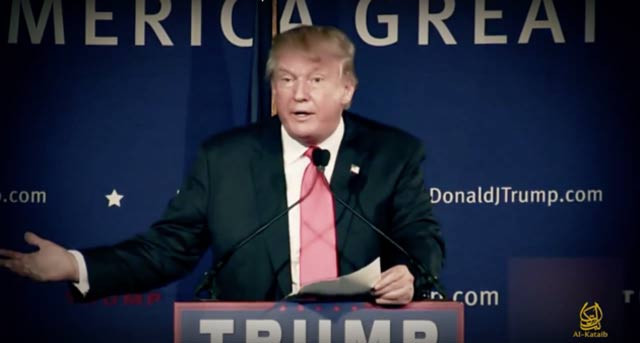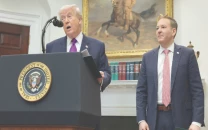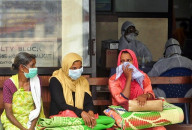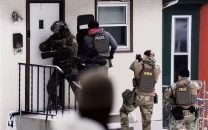Al Qaeda affiliate uses video of Donald Trump for recruiting
The west will eventually turn against its Muslim citizens, you either leave or you fight, the video said

Al Qaeda’s branch in Somalia released a recruitment video on Friday that criticised racism and anti-Muslim sentiment in the United States and contained footage of the Republican presidential candidate Donald J Trump announcing his proposal to bar Muslims from entering the country.
The video, released by the militant group Shabab, appeared to be the first time that Trump was featured in militant recruitment material. During a Democratic presidential debate last month, Hillary Clinton said that Trump had been used in a recruitment video for the Islamic State, a claim that was later debunked.
Trump's Muslim comments disqualify him from presidency: White House
Al Qaeda and the Islamic State are rival militant groups that compete for recruits and money among radicalised Muslims.
Representatives for the Trump campaign did not respond to requests for comment on Friday.
The video was part of a series dedicated to Somali-American militants from Minnesota and one Canadian who died on the battlefield in Somalia. The video was authenticated by the SITE Intelligence Group, which studies militant propaganda, and it appeared to be aimed at the African-American community.
Donald Trump calls for barring Muslims from entering US
Citing “historical injustices” against African-Americans, including police brutality and racial profiling, the video urged them to convert to Islam and engage in insurgency at home or abroad.
In addition to footage of Trump, the video, which is 51 minutes long, included excerpts from speeches by Malcolm X and unnamed white supremacists, as well as footage of white police officers, African-Americans protesting police brutality and African-American men in prison. Some appeared to be performing Islamic prayers.
Using footage of Anwar al-Awlaki, an American member of an al Qaeda affiliate who was killed in an American drone attack in 2011, the video also said the United States was gripped by a “malignant hatred” of Islam. It warned American Muslims that “there are ominous clouds gathering in your horizon.”
Trump calls for targeting Islamic State fighters' families
“Yesterday, America was a land of slavery, segregation, lynching and Ku Klux Klan, and tomorrow, it will be a land of religious discrimination and concentration camps,” Awlaki said in the previously recorded footage.
The video includes footage of Trump in front of a poster with his campaign slogan, “Make America Great Again.”
“So remember this, so listen, Donald Trump is calling for a total and complete shutdown of Muslims entering the United States until our country’s representatives can figure out what the hell is going on,” Trump said.
Awlaki then reappeared on the video. “The West will eventually turn against its Muslim citizens,” he said, jabbing his finger toward the camera. Only two choices remained for Muslims in the United States, he said.
“You either leave or you fight,” he said. “You leave and live among Muslims, or you stay behind and follow the example of Nidal Hasan and others who fulfilled their duty of fighting for Allah’s cause.”
Major Nidal Malik Hasan was an Army psychiatrist who staged a one-man attack at Fort Hood in Killeen, Tex, in November 2009, killing 13 people and wounding more than 30 others. He once attended a mosque in Virginia where Awlaki had preached and exchanged messages with him before committing his attack.
'Trump is disgusting': Skywriters slam White House hopeful
Al Qaeda is in many ways the parent organisation of the Islamic State, which split from the group over differences in strategy in the war in Syria. The two groups now compete for influence among radicalised Muslims, a competition that the Islamic State has dominated in recent years.
That contest has played out in acts of spectacular violence around the world. Analysts have said that recent terrorist attacks in Paris and Mali have been partly driven by the desire of one group to outdo the other.
This article originally appeared on the New York Times, a partner of The Express Tribune.



















COMMENTS
Comments are moderated and generally will be posted if they are on-topic and not abusive.
For more information, please see our Comments FAQ